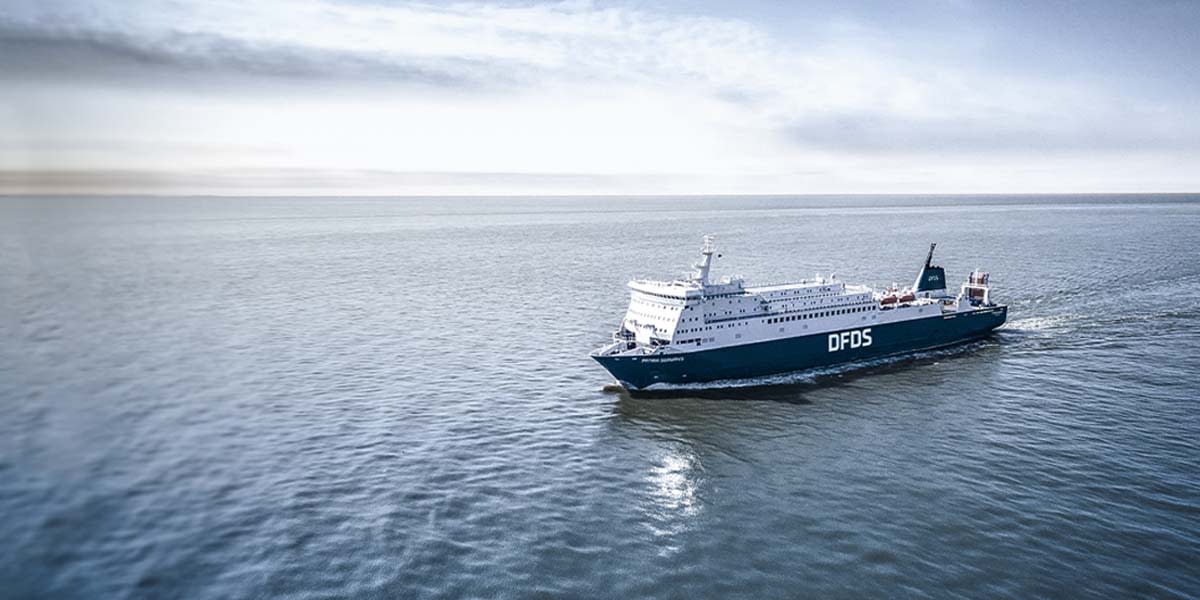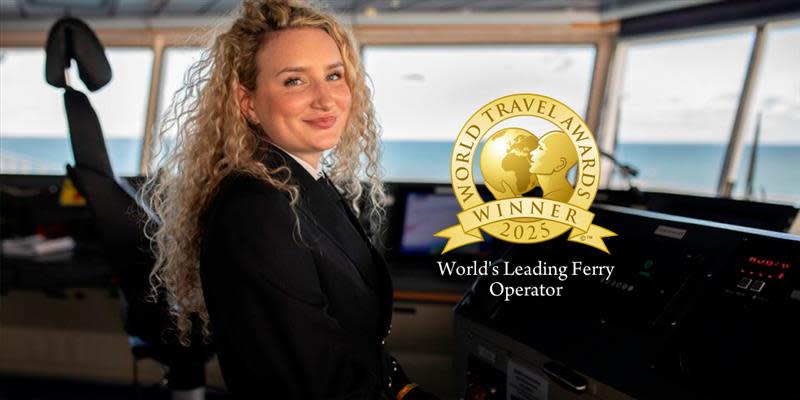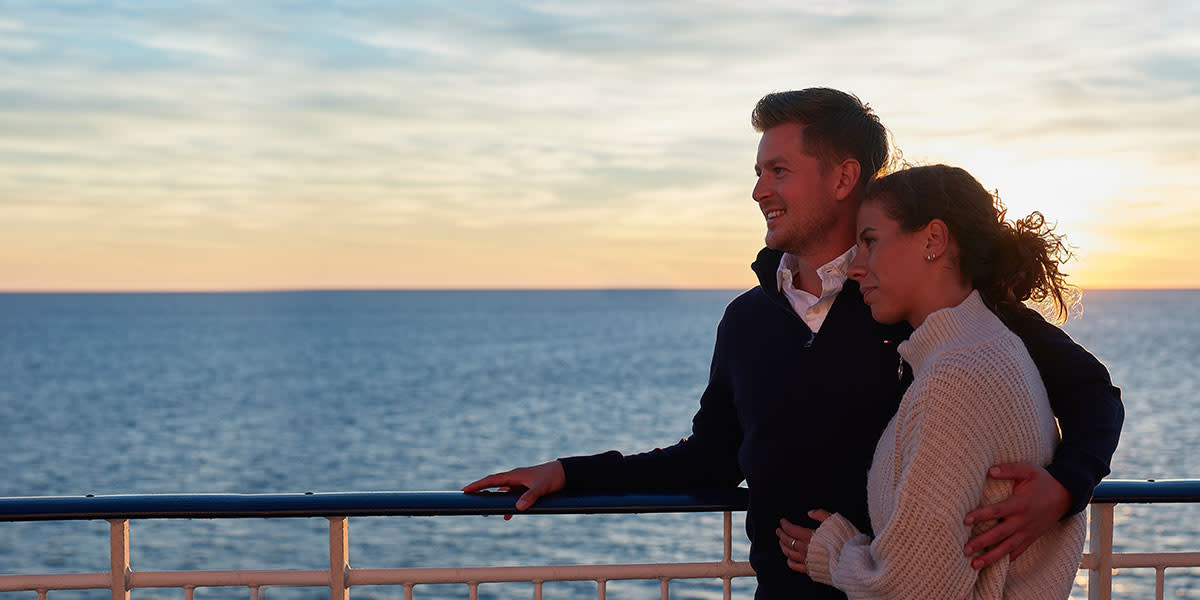
International ferry company in Klaipeda
The international company, which has taken root in Klaipeda, is solving the challenges of future maritime transport
The name of the company DFDS, founded in Denmark more than one and a half hundred years ago, started to sound louder in Lithuania in 2001, when one of the largest European ferry operators started operating in Klaipeda. It is true that Peder Gellert Pedersen, one of the leaders of the company, Chairman of the Board of the Lithuanian company DFDS Seaways, Executive Vice President of the DFDS A / S, responsible for the shipping division, says that Danes felt sympathy towards Klaipeda straight after Lithuanian independence.
Having invested more than 400 million euros in operations in Lithuania over 20 years, DFDS has established one of its passenger and cargo transportation centers in the Baltic Sea and plans to continue investing in improving the quality of services and expanding its position. The Chairman of the Board of DFDS Seaways shared not only his thoughts on what impressed the company with Klaipeda, but also on the challenges of DFDS and the entire maritime transport sector in the near future.
Not just geographical proximity
The chairman of the board of DFDS Seaways says that the expansion of the exploration company's activities in Lithuania began long before the privatization of the then shipping company Lisco. The interlocutor states that he travelled a lot in the former Soviet Union and already at that time assessed Lithuania as one of the best directions for the development of the passenger and cargo transportation business by sea.
"From the cultural point of view, we feel that we are closer to Lithuania than to Latvia or Estonia, not to mention the geographical proximity. Lithuanian education also left a great impression, especially in the port city and its surroundings, where a lot of attention is paid to seafaring. We cooperate with the Lithuanian Higher School of Maritime Affairs in Klaipėda and with Klaipėda University, which trains the specialists necessary for our activities. In fact, the workers raised in the port city, working both at sea and on shore, have never disappointed. ”
P. Pedersen admits that in Lithuania, where land transport dominates, Klaipeda is a special city with a special focus on the sea and shipping. Probably, precisely because of the love of Klaipėda residents for the sea, the Danes have succeeded so well in the last decades. One of the managers of DFDS A / S notes that he has constantly felt the support not only of the higher education institutions of the port city, but also of the municipality in the development and establishment of DFDS in Lithuania and the team of specialists working in the company.
“Lithuanians who started working in our company already had all the necessary knowledge and skills, they did not need to be explained anything too much. In addition, many of them had established close and valuable ties with St. Petersburg, Odessa, Kaliningrad, and other cities in the former Eastern Bloc. Such an experienced team helped to quickly attract specialists from various fields and countries, ”the interviewee recalls.
Thus, even two decades after the start of DFDS operations in Lithuania, the company considers Klaipėda to be the main center of operations in the Baltic States. It is true that the company also operates in Estonia and Latvia. The DFDS logistics center is located in Liepaja, the company operates the Paldiski - Kapellskar route in Estonia, and has an agreement to transport cargo to Finland. The pandemic did not disrupt operations.
According to Mr Pedersen, despite the disruption of certain passenger routes or disruptions to freight transport, the DFDS passed the test perfectly. Primarily because DFDS’s main source of revenue is cargo shipping, which, despite falling at the start of the pandemic, quickly returned to normal.
"In fact, not only have we been able to maintain freight volumes in the Baltic Sea, but even passenger flows have not fallen as sharply as might have been expected. The majority of passengers travelling on DFDS ferries in the Baltic Sea are people working abroad who also travelled during the entire pandemic. Understandably, there were a few months when everything was temporarily suspended, but for most of the last year the movement between the Baltic states, Sweden and Germany continued. At one time, we were almost the only transport corridor that provided connections between Lithuania, Western and Northern European countries. So, despite COVID-19, passenger flows have remained relatively high, ”says Pedersen.
The executive vice president of DFDS A / S says that the most important challenge for the future for both DFDS and the entire maritime relocation sector is no longer a pandemic, but environmental protection. With a huge focus on tackling climate change for both international organizations and consumers and businesses, important changes await at sea. True, the transformation of companies such as DFDS towards more sustainable operations is a much more complex challenge than, for example, car transport companies.
Choosing future technologies
"Ground vehicles, especially passenger cars, have undergone extremely rapid development in recent years, and models that do not generate any emissions are already widely available. We still often disagree with electric trucks, but their rise is already here. "Unfortunately, the pace of change in maritime transport is slower so far, but we are well aware that if we do not take action to reduce greenhouse gas emissions, both DFDS and other ferry companies risk losing ground," he said.
According to him, the company takes sustainability issues seriously and sets itself ambitious goals to reduce CO2 emissions. DFDS plans to acquire the first green ship by 2025. Mr Pedersen has not yet revealed what environmentally friendly technologies will be used on the ferry, but points out that it will not necessarily be electric, but will not use fossil fuels. Thus, the first newly built ro-pax ferry in 40 years, which will strengthen the Baltic Sea routes served from Klaipėda, will be the last new ship with the old generation technologies, which will soon be added to the fleet of AB DFDS Seaways.
Maritime transport companies do not yet have a unified solution for the propulsion of ships in the near future. Mr Pedersen says electric ferries would soon be able to carry passengers and freight over short distances, such as between the ports of Dover and Calais. Other fuels and technologies, such as hydrogen or ammonia, are likely to be used for longer distances. One of DFDS executives does not rule out that methanol-powered engines could also be a transitional solution. "We will work until we find the most suitable solution," adds the interlocutor. At the same p. Pedersen points out that sustainable business development covers far more areas than the application of low-emission technical solutions. Monitoring and assessing environmental impact is also an important part of the sustainability strategy, and DFDS presented for the first time this year not only a financial report but also an environmental, social and corporate responsibility (ESG) report. DFDS also pays special attention to working conditions - to ensure equal opportunities and inclusion of employees.
Priority in relationships
"It is not easy to create conditions for gender diversity when working at sea. However, we are developing and implementing various programs so that both men and women working on our ships can reconcile work and family life as easily as possible. Another area to which we pay particular attention is working conditions and safety. It is no secret that activities in the field of logistics, and especially at sea, are quite dangerous, so we constantly make sure that employees work as safely as possible, both on ships and ashore, ”P. Pedersen emphasizes.
According to the executive vice president, DFDS’s ambition and ability to focus on people is one of the reasons why there is little room for doubt about the company’s future prospects. The interviewer, who has been with the company for almost three decades, says it is a good example of the effectiveness of this approach: his partnership with DFDS continues because the company cares about its people. Not only business development is important for the company, but also fostering relationships with employees and customers.
"We are constantly reminding ourselves of one of the main principles of DFDS's operation - to move forward so that we and our customers can grow. So when making any decisions, we ask ourselves - will this be the fairest for everyone? Not only to the shareholders of the company, Klaipeda port, but to everyone who may be involved in the decision and its consequences. It is probably this approach that has helped DFDS to survive and grow for more than 150 years, ”says Peder Gellert Pedersen.
Our routes

Proudly named the World’s Leading Ferry Operator
We did it! We retained our titles as both Europe’s Leading Ferry Operator and the World’s Leading Ferry Operator again in 2025.
We were also once again recognised as having the best website in our industry – scooping both the European and World awards in 2025.
A heartfelt thank you to everyone who voted, and to our passengers, colleagues and partners who contribute to our continued success – we couldn’t do it without you all.



